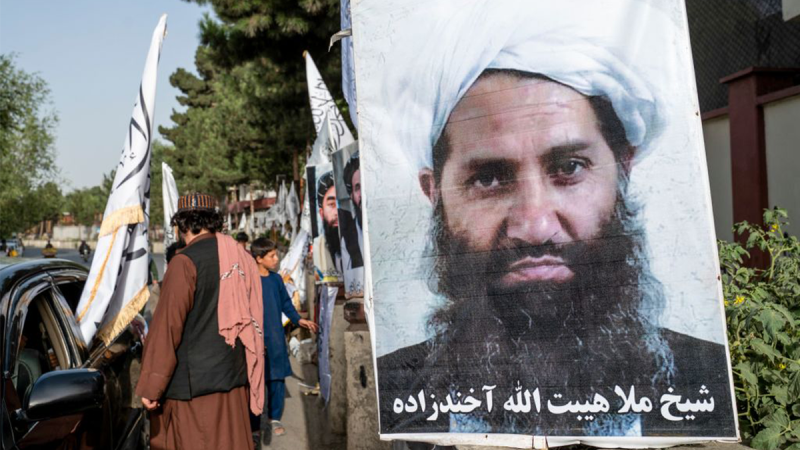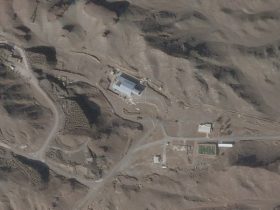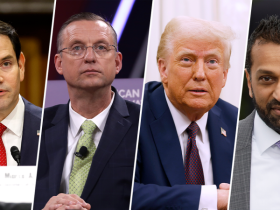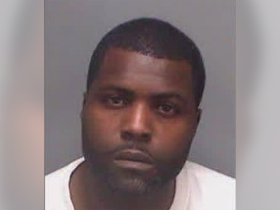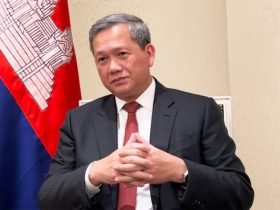The Taliban’s supreme leader said Sunday there is ‘no need’ for Western laws in Afghanistan, noting that democracy is dead as long as sharia laws are in place.
Hibatullah Akhundzada was speaking during a sermon marking Eid al-Fitr, an Islamic holiday, at the Eidgah Mosque in the southern city of Kandahar.
‘There is no need for laws that originate from the West. We will create our own laws,’ Akhundzada said as he emphasized the importance for Islamic laws, according to audio of his message that was published on X by the Taliban government’s chief spokesman Zabihullah Mujahid.
The Taliban’s interpretation of sharia has resulted in restrictions for Afghan women and girls, who have been denied an education, working roles in many job fields and from appearing in most public spaces.
These laws have isolated the Taliban in the international community, but they have still been able to establish diplomatic ties with some countries, including China and the United Arab Emirates.
Akhundzada has taken a stronger approach on policy since the Taliban seized control of Afghanistan in 2021 during the chaotic withdrawal of U.S. and NATO troops from the region, despite some officials initially promising a more moderate government.
The terror group’s supreme leader criticized the West in his remarks on Sunday by saying non-believers were unified against Muslims and that the U.S. and other countries were united in their hostility toward Islam, pointing to the Israel-Hamas war in Gaza.
Akhundzada said democracy had come to an end in Afghanistan and sharia was in effect. He also argued that supporters of democracy were attempting to separate the people from the Taliban government.
The Taliban have no credible opposition inside or outside the country, although some senior figures within the government have criticized the leadership’s decision-making process and concentration of power in Akhundzada’s circle.
Some Taliban members want greater engagement on the world stage and to eliminate harsher policies to attract more support from outsiders.
In recent months, there has been increased engagement between the Taliban and the U.S. under President Donald Trump, mostly due to prisoner exchanges and releases.
The Associated Press contributed to this report.

